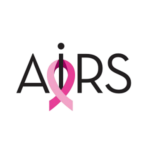Breast cancer occurs when a tumor, or an abnormal mass of tissue, in the breast grows and invades surrounding tissues or other parts of the body. These tumors are called malignant, or cancerous. While breast cancer can occur in men, it happens mostly to women.
What’s the risk?
According to a report published by the National Cancer Institute, 2.4-percent of women born in the U.S. today will develop breast cancer at some point in their lives. This finding means that a woman born in the U.S. today has about a one in eight chance of having breast cancer during her life.
Does age affect the risk of breast cancer?
Yes, age does have an impact on a woman’s risk of breast cancer. According to the National Cancer Institute’s report, the percent chances of diagnosis and the respective ages appear below:
- Women ages 30-39: 0.44-percent (or 1 in 227)
- Women ages 40-49: 1.47-percent (or 1 in 68)
- Women ages 50-59: 2.38-percent (or 1 in 42)
- Women ages 60-69: 3.56-percent (or 1 in 28)
- Women ages 70-79: 3.82-percent (or 1 in 26)
While the strongest contributing factor to a woman’s risk of breast cancer is her age, an individual woman’s risk of depends on some additional factors, some known and others unknown.
What other factors contribute to the risk of breast cancer?
Researchers have come up with the following additional factors that may increase a woman’s risk of breast cancer. If you or a loved one has any of these additional factors, it’s important to check for the signs of breast cancer on a regular basis.
- Genetics: Women with gene alterations such as BRCA1 and BRCA2 have an increased risk of breast cancer.
- Family history: If a woman’s mother, sister, or daughter has been diagnosed with breast cancer, she’s at a higher risk than another woman.
- Personal history: A woman who’s had breast cancer in the past is more likely than others to develop cancer again.
- Alcohol: The more alcohol a woman drinks on a regular basis, the higher her risk of breast cancer.
- Physical activity: Women who are not regularly physically active are at an increased risk of breast cancer.
- Race: In the U.S., breast cancer is diagnosed more often in white women than any other race.
These are some of the other factors that can contribute to higher risks of breast cancer among women. For a complete list and a full understanding of your individual risk of breast cancer, talk with your doctor.
Want more information about breast cancer?
The AiRS Foundation posts updates on the latest medical breakthroughs, as well as tips for living with breast cancer and deciding how to approach breast reconstruction, on its weekly blog. Check back in for more information!

